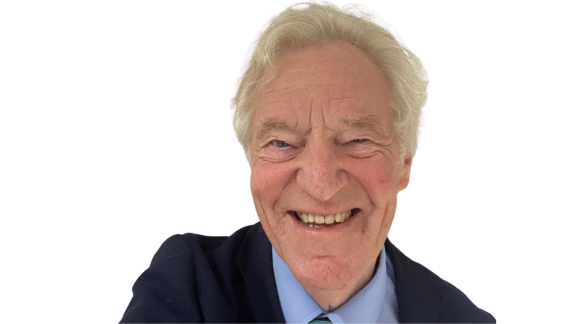Brave new world: the third health revolution

Professor Muir Gray explains the theories behind the seven steps he believes are required to create a bold vision of transformational leadership, and how it might work in practice.
There have been 25 NHS reorganisations during my lifetime, but only three health revolutions. The first one, in 1948 when I was aged just four, established the NHS bureaucracy. The second in 1990 introduced ‘the market’, because of concerns about the effectiveness of bureaucracies.
The third revolution is the current one, creating a service built on integrated systems with a collaborative culture of collective responsibility to increase not only productivity, but also value for money.
Culture of stewardship
The idea stems from 2009, when Elinor Ostrom was jointly awarded the Nobel Prize for economics. Her half of the prize went for describing a culture of stewardship. Although she didn’t write about healthcare, the lesson learned is that unless people using the resources feel collective responsibility for the future of the common wealth, then its management becomes impossible. They have to be enabled to become the stewards of the common wealth. You can privatise it, or inspect it, but progress is impossible without the culture of stewardship.
The third revolution
Rather than being a structural reorganisation, the current, third revolution is delivered through complex adaptive systems with a collaborative culture of stewardship. This is created by the leadership using a number of methods, including language. New language doesn’t just describe the new reality, it actually creates that reality and then everyone in the new reality thinks in a different way.
Changing the culture
As leaders it’s your job to change culture.
Establishing value-based healthcare means the first priority of any integrated care system (ICS) partnership board is to create the right culture. I’m now working with ICS leaders around the UK to advise them on the designing a culture of stewardship.
As leaders it’s your job to change culture. Leadership changes culture and management works within that culture. Creating this new reality and changing the way people think requires a commitment to transformation.
This entails unashamedly changing the way in which people’s brains work.
The ‘Magnificent Seven’ tasks
To create this culture of stewardship I’ve identified steps in a process that I’ve called The Magnificent Seven:
- Understand stewardship.
- Adopt the new meanings of value, waste, outcomes and resources.
- Focus not only on levels of care and institutions but also on segments of the population defined by need, such as people with respiratory problems.
- Design an integrated system for each segment.
- Develop a network of all the agencies required to realise the system’s outcomes.
- Ensure personal value is optimised and inequity minimised.
- Create the new culture of stewardship.
These steps require a new set of tools and concepts, using new language terms such as outcomes, waste and resources. If you look at examples of the new language in the white paper, you can see how this new reality is described. The word ‘system’ is mentioned 251 times; ‘collaborative’ 55; and ‘population’ 49. Although ‘stewardship’ isn’t mentioned, ‘collective responsibility,’ with its similar inference, is.
Providing practical advice on establishing this new reality requires focusing on the sub-group or segments of the populations, such as people in the last years of life; people who are homeless; and people with debilitating conditions such as asthma, epilepsy and backache. A system must be designed for each one and front and centre must be a desire to provide personal value; the individual has to clearly know what’s on offer.
Working collaboratively
In order for the system to be effective, a new paradigm also needs to be established, based on ‘triple value’:
- Personal value - does everyone knows what they’re getting in an elective operation?
- Technical value - have the resources been allocated optimally?
- Population value – which has two aspects:
- The optimal allocation of resources to the different segments of the population.
- Ensuring the NHS resources support the broader social and economic development of the population served, sometimes called social value.
This entails getting everyone involved from the start, from the local council to the public and the local papers, which shouldn’t just be about capturing news on opening a new MRI unit. Everyone needs to understand about creating a higher value, lower waste and collaborative organisation and there are excellent examples of systems for people with musculoskeletal problems in Mid Notts, or people in the last year of life in North Essex.
Brave new world
In this brave new world, the aim is to provide only interventions that make a real and tangible difference to everyone’s lives. A good steward leaves the farm in a better condition than they found it.
My hope for the future is that this new way of collaborative working leaves the NHS in a much better place that will benefit future generations.
Are you ready?
Professor Sir Muir Gray is executive director of Oxford Value and Stewardship Programme, and director of the Optimal Ageing Programme.
You can follow Professor Sir Muir Gray on Twitter @muirgray



